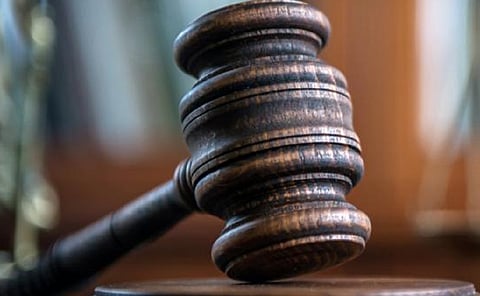

The National Green Tribunal (NGT) on February 22, 2024 highlighted a significant deficiency in sewage and solid waste management in West Bengal, emphasising the lack of advancements in the effective handling of both solid and liquid waste within the state.
The tribunal was looking at the half yearly compliance report dated December 18, 2023 submitted by West Bengal government.
Upon reviewing the report, the NGT observed that the cumulative waste production within urban local bodies (ULB) in the state amounted to 13,469 tonnes per day (TPD), with only 3,300 TPD undergoing processing. Therefore, there is a gap in processing of around 8,982 TPD.
“However, the actual gap will be 10,169 TPD, as waste of 1,187 TPD shown as secured landfill is not a waste processing as per MSW Rules, 2016,” the NGT noted. So, substantial legacy waste of 10,169 TPD is accumulating.
The report revealed that among the 125 ULBs, solid waste management is implemented in only 6, leaving 58 ULBs without coverage. Moreover, the target timeline for addressing solid waste management in the remaining 58 ULBs is set for December 2024.
With regard to legacy waste, there are 123 dump sites with 11.02 million tonnes of waste. The time frame for clearing the dump site is December 2024 and only 69 dump sites have been cleared so far. From the report, it becomes clear that 1,249.3 millions of litre per day or MLD is being discharged in untreated form, thereby harming the environment.
The counsel for the state of West Bengal submitted that the state chief secretary may not be prosecuted and last opportunity be granted to the state to show a better performance and compliance of orders of the tribunal in respect of solid and liquid waste management in the state.
The NGT directed the chief secretary, West Bengal to file the next six monthly reports in the form of an affidavit indicating the progress and compliance of directions of the tribunal. The court also directed the next listing of the matter on August 22, 2024.
The Benital lake in Chamoli district, Uttarakhand has reduced in size by 0.116 hectares from its original 2-hectare expanse. This lake plays a crucial role in positively impacting groundwater recharge, supporting vegetation, maintaining ecological stability in the region and ensuring a safe and clean water supply for approximately six villages.
The information was conveyed in the action taken report through an affidavit submitted by the district magistrate of Chamoli in adherence to a NGT order dated November 9, 2023.
A joint inspection found that Benital lake harbours substantial amounts of aquatic grass without any provisions for the protection and cleanliness of aquatic life within the waterbody. Although confirmation of illegal tree felling was inconclusive, remnants of old tree stumps were identified at the spot.
During the inspection, erosion along the periphery of Benital lake was noted, seemingly attributed to the rainy season, with no indication of erosion caused by human or mechanical activities. Additionally, various forms of solid waste, such as plastic bottles, cattle dung, wrappers, glass bottles, and packaging materials, were observed scattered around the lake.
Keeping in view the importance attached to the fragile Himalayas, the aspects of solid waste management in the surrounding area and conservation and management of the Benital lake and its catchment area need to be given due attention in accordance with the Wetland (Conservation and Management) Rules 2017, and Guidelines 2020, stated the February 26, 2024 report.
The NGT on February 22, 2024 took serious consideration of a news report titled Once upon a river published in newspaper Bangalore Mirror on January 10, 2024, on the deteriorating water quality of rivers in Karnataka and directed notices to be issued to the authorities.
Notices were to be issued to Karnataka State Pollution Control Board; Bangalore Water Supply and Sewerage Board; deputy commissioner and district magistrate, Bengaluru and the state of Karnataka through the chief secretary.
The news item disclosed the poor water quality of rivers across the state. A recent water quality analysis of 12 rivers in the state revealed that nine had stretches with poor water quality (class D), the news article said.
The 12 rivers monitored under the central government’s National Water Monitoring Programme (NWMP) are Arkavathi, Lakshmana Tirtha, Tungabhadra, Bhadra, Cauvery, Kabini, Kagina, Krishna, Shimsha, Bhima, Netravati and Tunga. The cause of poor quality is stated to be rapid population growth, immense pressure from urbanisation and inaction of the authorities concerned.
The news item also revealed that the number of industries along these river stretches has gone up. The cities are discharging untreated sewage and the board and authorities concerned have failed to treat sewage generated by the city and even the sample collection protocols are not being followed.